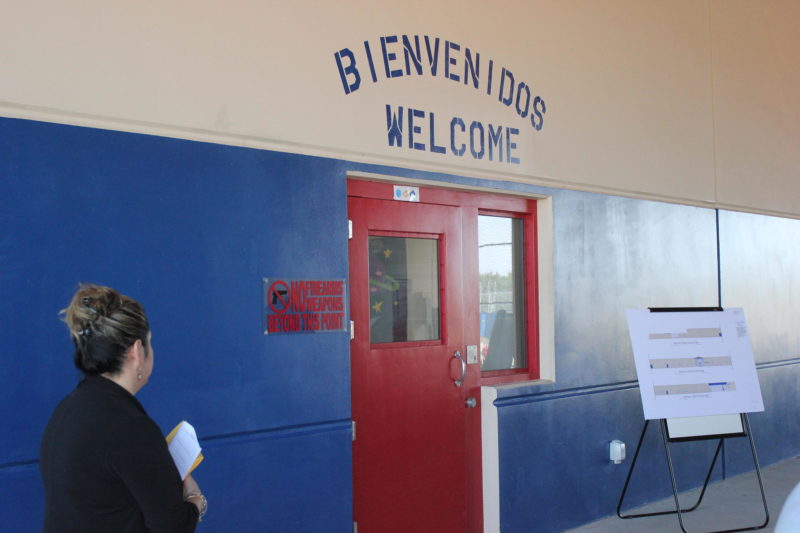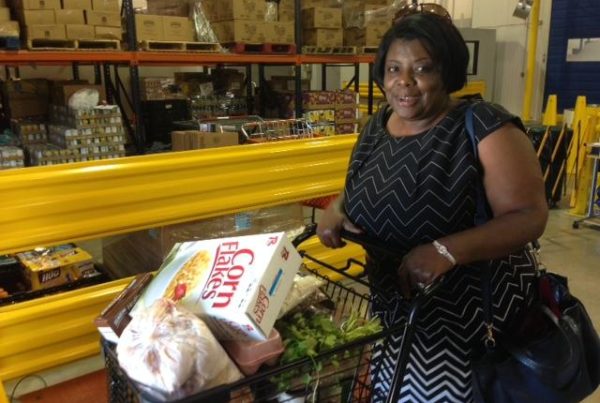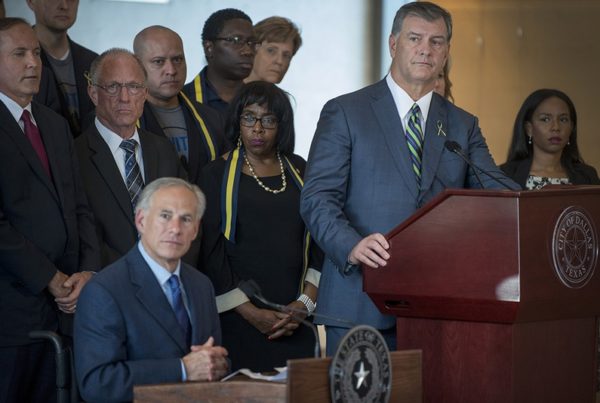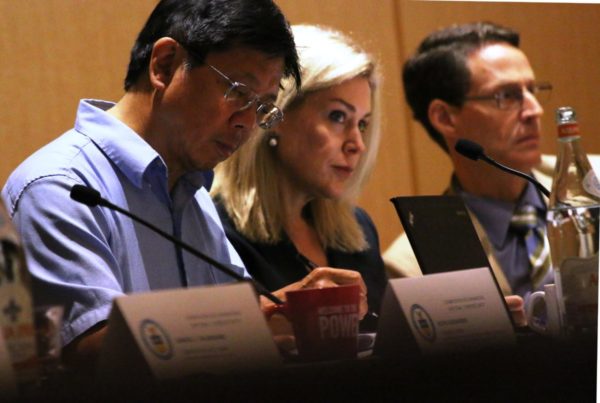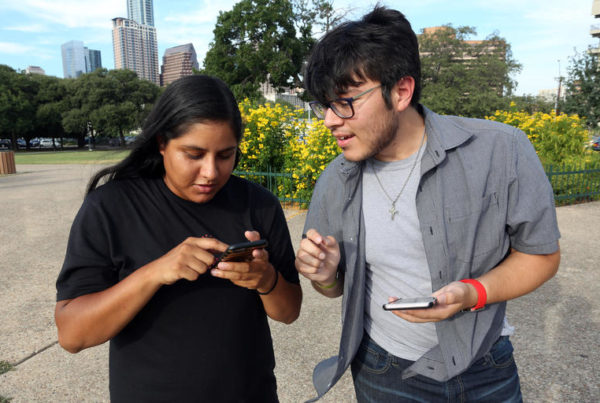Officials from Duval County in South Texas have submitted a bid to host a new family detention center for immigrants who have entered the country illegally. If plans move forward, the San Diego, Texas facility would be the third family detention center in the state.
The county would operate the center through a for-profit contractor, Serco. That’s been a sticking point for some. While those in favor the detention center say it would bring jobs and revenue to an area that’s struggled economically, others cite security and humanitarian concerns.
Beatriz Alvarado, a reporter for the Corpus Christi Caller-Times, says that Duval County residents didn’t have an opportunity to weigh in on the proposal before County Judge Richard Carrillo submitted it to Immigrations and Customs Enforcement (ICE).
“Apparently, there wasn’t time for it,” Alvarado says. “The same proposal was provided to Jim Wells County and they were able to accommodate a public hearing. But according to the Duval County judge, it was just cutting it too close to the deadline to submit the application to ICE.”
Alvarado says that it wasn’t just the public that was in the dark about the proposal – she says that city officials were not consulted.
“My understanding is the only people involved in the conversations were the county commissioners,” she says. “I reached out to the city officials but they were not in the loop at all about plans or potential plans.”
Officials say that the facility will bring 200 jobs to the local economy, which has suffered from the oil bust.
“For the past year and a half, they’ve been hit pretty hard with the slowing in the Eagle Ford Shale,” Alvarado says. “Several counties in that area have had to lay off several employees and their sales tax revenue has just really decreased dramatically.”
Some have spoken out against the proposal. Activist groups are concerned about the involvement of a private corporation in operating detention facilities. Some in the community raised safety questions, while others just wished they had more input.
“There also were some locals who really just wanted to be more informed on the matter as far as how many jobs are going to be exclusively local, implications on the community itself, things along those lines,” Alvarado says.
Listen to the full interview in the audio player above.
Post by Alexandra Hart.


